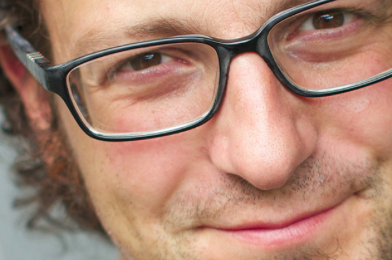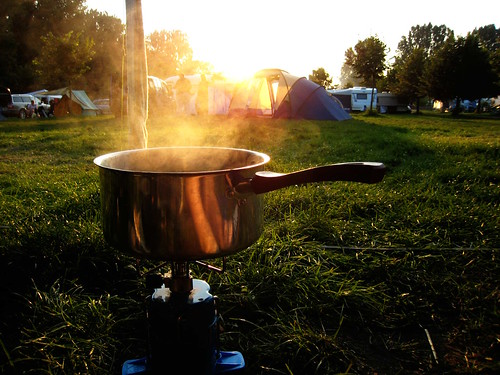I hope you enjoy the show!
You can help Spark My Muse by sharing the show with others or donating some legal tender.
Both = Love.
To donate (any amount at all is awesome)
click the button in the left sidebar and thank you for that, and for listening.
xo
~Lisa
Podcast: Play in new window | Download (Duration: 28:24 — 39.0MB) | Embed
Subscribe to Spark My Muse Apple Podcasts | Spotify | Email | TuneIn | RSS | Subscribe to Spark My Muse

Shane’s Bio:
Shane Claiborne graduated from Eastern University and did graduate work at Princeton Seminary. In 2010, he received an Honorary Doctorate from Eastern. His adventures have taken him from the streets of Calcutta where he worked with Mother Teresa to the wealthy suburbs of Chicago where he served at the influential mega-church Willow Creek. As a peacemaker, his journeys have taken him to some of the most troubled regions of the world – from Rwanda to the West Bank – and he’s been on peace delegations in Afghanistan and Iraq.
Shane is a founder and board member of The Simple Way, a faith community in inner city Philadelphia that has helped birth and connect radical faith communities around the world. He is married to Katie Jo, a North Carolina girl who also fell in love with the city (and with Shane). They were wed in St. Edwards church, the formerly abandoned cathedral into which homeless families relocated in 1995, launching the beginning of the Simple Way community and a new phase of faith-based justice making.
Shane writes and travels extensively speaking about peacemaking, social justice, and Jesus. Shane’s books include Jesus for President, Red Letter Revolution, Common Prayer, Follow Me to Freedom, Jesus, Bombs and Ice Cream, Becoming the Answer to Our Prayers – and his classic The Irresistible Revolution. He has been featured in a number of films including “Another World Is Possible” and “Ordinary Radicals.” His books are translated into more than a dozen languages. Shane speaks over 100 times a year, nationally and internationally.
His work has appeared in Esquire, SPIN, Christianity Today, and The Wall Street Journal, and he has been on everything from Fox News and Al Jazeera to CNN and NPR. He’s given academic lectures at Harvard, Princeton, Brown, Liberty, Duke, and Notre Dame. Shane speaks regularly at denominational gatherings, festivals, and conferences around the globe. Follow him online at:
Facebook: ShaneClaiborne
Twitter: @ShaneClaiborne
Shownotes (with links) from my conversation with Shane Claiborne
MIN 4:00
About 15 years ago Shane Claiborne and a few friends founded The Simple Way in the poorest section of Philadelphia where drug and sex trafficking became the main “industries” when the factories closed. Ever since then, he and his friends have been living in a communally within the neighborhood and serving the residents there in many ways.
I ask Shane, How have they sustained their communal lifestyle for so long?
Shane shares some things that have helped:
1. We are not attached what it should look like in expression or form as much as we have chosen to love each other and Jesus well and allow community to flow out of that.
“If you are in love with your vision for community you will actually destroy it.”
2. Allowing it to change over the years, from a house with 12 people sleeping all over the place in one house with one bathroom to a village of 10 or 20 houses all in the same neighborhood.
3. Helpful wisdom from the outside from others who’ve been doing communal living for a long time (The Benedictine order, for instance: 1,600 years)
6:10
What is “new monasticism” anyway? Shane explains.
6:30
“Folks are really hungry for community.”
7:20
“In Western culture we’ve lost the art of community.”
In other parts of the world this is how people have survived.
7:40
Economically impoverished communities can be community-rich (places) because they need each other.
7:50
“It’s no coincidence that in some of the richest places in the world we have the highest rates of loneliness..and depression, and suicide.”
8:00
“We are made to love and be loved.”
8:20
Even the mega-churches put in a lot of effort into making small groups work well (because that’s how you find community).
8:40
New Monasticism (as lived out in the U.S. or other wealthy Western countries) connects us with an ancient practice that continues on (and is “life as normal”) in many places in the world.
9:20
What communal living in Christian communities looks like in different contexts…
“Sometimes it’s about renouncing materialism and the Kardashians.”
10:00
What happens when people pilgrimage to The Simple Way to learn what it’s about.
Click for resources from The Simple Way
10:30
On the romantic notions of The Simple Way…
Mother Teresa said, “Calcuttas are everywhere if we only have eyes to see. Find your Calcutta.”
11:00
There is a wisdom in learning from other communities. Shane and others set up a network called the community of communities on the web which lists other communities like his. Example: Reba Place Chicago.
11:35
This way can get rid of the romanticism and allow people to experience communal living first-hand.
Monthly open houses at A Simple Way are on ramps (to learn about community).
12:20
It’s about not just believing the doctrinal statements but about living differently and finding out what that looks like.
13:15
We are called to not be conformed to this world. God wants us to use our gifts and talents.
“Non conformity doesn’t mean uniformity.”
13;30
On the 2007 fire that destroyed his home and many other homes–leaving about 100 families with nowhere to sleep and live. Shane was left in need within the community he helped.
The very surprising statement the Red Cross relief worker told him.
14:00
There are 700 abandon factories and 20,00 abandon houses nearby.
15:30
Their community has built a park, a greenhouse, green spaces for gardens. See photos at TheSimpleWay.org
16:20
How the neighborhood pulled together after the devastating fire of 2007.
16:40
Shane:
As Jesus said, “Don’t worry about tomorrow. Don’t stock up your treasure that moths… and fires… can burn up and destroy.”
17:10
Ministry is mutual and if we don’t have needs we can’t be blessed. (Lisa)
18:30
One of Shane’s favorite quotes:
“If you’ve just come to help me, you’re wasting your time. But, if you’ve come because your survival and mine are bound up together, then let’s hold hands and we’ll work together.”
18:40
This quote comes in and corrects the posture by which we’ve often come on a mission to help people and thinking with a wrong perspective.
19:20
His friend says, “We are born on third base, but we think we’ve hit a triple.”
21:30
We don’t need has much as we think we do.
21:40
On Shane’s take of the story of “the rich young ruler”:
He wants to inherit the kingdom (entitlement thinking).
(QUICK LINK: Read the short Bible story HERE.)
22:10
“For folks that are independent and self-sustaining it’s hard for us to know that we need God and other people.”
22:30
“Independence is not a gospel value. We need interdependence. It’s good to need other people and to need God.”
23:30
Besides people wondering what happened to his dreadlocks, people ask Shane this question the most.
24:20
Sometimes we have to challenge our location. (The places) where we (live) end up or are built around (that which) counters (opposes) gospel values. Like “suburban sprawl” which was created to get away from the urban problems (we should work to fix) and keep us from doing good for others who need it most.
It’s about living a life, not where we do great things, but where we do small things with great love (Mother Teresa). It’s not how much we do, but how much love we put into every act (of serving God).
25:00
We must ask:
What are my skills and passions and how might they connect to this world’s pain and injustice?
Whether it’s being a doctor, lawyer, plumber, or whatever, simply do your part.
26:00
What REALLY happens to the “dreds”.
Thank you, Shane! Blessings to you and your work. May we find our place to do good too.
I’d like to find out who’s listening to the show. Please help out and take this short audience survey.
It will take about one minute and it’s 100% anonymous. Thanks for helping!
Click the box below.
AND Thanks for listening to the show!
Want to answer the Question of the Day?
QOTD: What is the “Calcutta” near you and what gift might you bring to it ?
(okay, that WAS technically two questions.)





